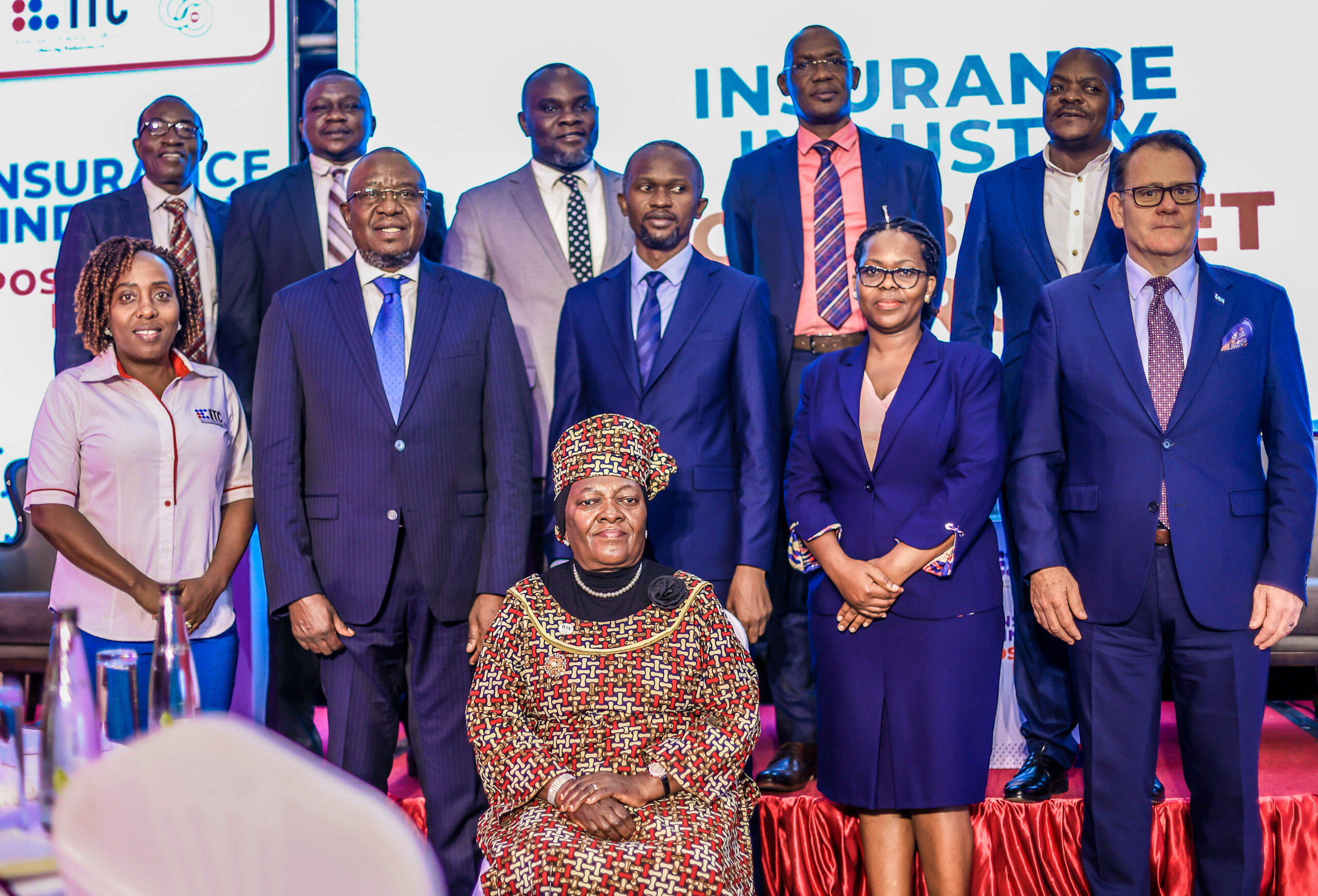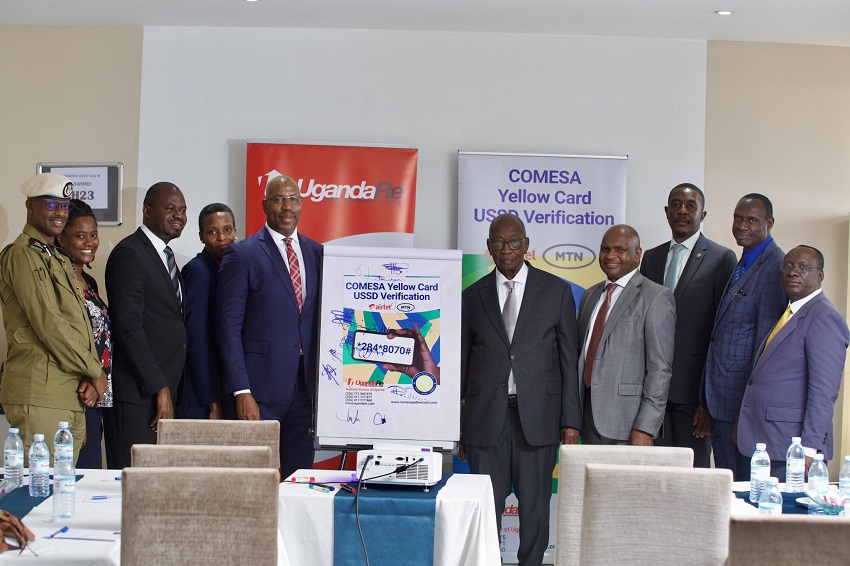The Insurance Regulatory Authority of Uganda (IRA) is stepping up its engagement with taxi operators across the country, aiming to enhance understanding and proper utilization of Motor Third Party Insurance—a legal requirement often misunderstood or misapplied.
The renewed campaign comes at a time when key reforms to the Motor Third Party Insurance Act are being proposed to address long-standing gaps in the law and make insurance more responsive to the needs of motorists and accident victims.
Speaking at an educational campaign targeting member of the Uganda Taxi Operators Federation (UTOF), a key stakeholder in Uganda’s public transport sector.
IRA says the outreach is designed to demystify the Motor Third Party Insurance process, explain its benefits, and rally support for critical amendments to the current law—last updated in 1989.
Stephen Kaddu Mukasa, the IRA’s Manager of Inspection, emphasized the importance of awareness among taxi drivers and stage leaders. Many operators, he said, lack sufficient knowledge about the purpose, coverage, and procedures involved in making insurance claims.

Stephen Kaddu Mukasa, Manager of Inspection at IRA
“We’ve been engaging the Uganda Taxi Operators Federation to sensitize their members on the benefits and functionality of Motor Third Party Insurance,” Mukasa explained. “A significant number of operators do not fully understand how the policy works or how to access claims after an accident.”
The IRA’s outreach covers the entire insurance journey—from policy acquisition through licensed providers, to the specific documents needed to process a claim. Participants are taken through each step with practical guidance.
“By educating operators about what is expected, we reduce frustration, increase trust in the system, and ultimately encourage more compliance,” Mukasa noted. “We’ve also taken time to listen to their concerns and the barriers they face in accessing these services.”
The engagements are designed to be interactive. Through dialogue, IRA collects feedback directly from operators—especially on areas of confusion or dispute. This feedback, Mukasa noted, is vital in shaping reforms that are both effective and realistic.
According to IRA’s Chief Executive Officer, Alhaj Ibrahim Kaddunabi Lubega, who addressed the drivers directly. He reminded the audience that insurance is fundamentally about community protection.
“Insurance is about solidarity,” Kaddunabi said. “We all contribute a little so that when one of us faces difficulty—like an accident—they are supported in getting back on their feet. It’s about being each other’s keeper.”
He pointed to the rising cost of Motor Third Party Insurance premiums, now nearing sh200,000 per year for some taxi operators—up from sh57,000 just a few years ago. In light of these contributions, he argued, the compensation received in the event of an accident must reflect the true cost of damage and loss.
“If someone has paid premiums for years, they deserve meaningful coverage. That’s why we’re proposing compensation amounts of no less than UGX 10 million for accident claims,” he added.
 Alhaj Ibrahim Kaddunabi Lubega CEO IRA speaking to taxi drivers recently
Alhaj Ibrahim Kaddunabi Lubega CEO IRA speaking to taxi drivers recently
Kaddunabi also introduced a new dimension to the conversation—Takaful Insurance, a scheme that operates under Sharia (Islamic) law. These products offer policyholders a shared stake in both the profits and losses of the insurance pool.
“Takaful is designed for communities who prefer insurance models based on mutual assistance and religious compliance,” Kaddunabi explained. “Policyholders benefit when there is a surplus, and collectively support each other when there is a loss. We are giving people options—modern and inclusive.”
By intensifying education, modernizing the law, and investing in digital tools, the Authority aims to eliminate confusion, prevent exploitation, and restore public confidence in the value of insurance.
“Ultimately, this is about fairness and dignity,” said CEO Kaddunabi. “When someone pays for insurance, they should not be treated like they don’t have any protection. We want every motorist—whether in Kampala or upcountry—to know their rights and enjoy the full benefits of the insurance system.”
Long-Awaited Legal Reforms in Progress
Both Kaddunabi and other IRA officials acknowledged the growing pressure to revise the existing Motor Third Party Insurance Act, which was passed over three decades ago.
“The current law, passed in 1989, is outdated,” Kaddunabi said. “Many changes have taken place in the economy, in technology, and in the transport sector. The law must evolve to meet current realities.”
Mariam Nalunkuuma, IRA’s Public Relations Officer, explained the specific shortcomings the draft amendment seeks to address.
“One of the biggest gaps is that the current law does not cover the driver. If a driver is injured in an accident, they are not eligible for compensation under the existing provisions. That is something we are working to fix,” she said.
In addition, the revised law aims to include vehicle damage in the insurance compensation package. Presently, unless a vehicle has comprehensive insurance, it cannot receive repairs under Motor Third Party coverage.
“The reforms will make it possible for vehicles involved in accidents to receive compensation even under third-party coverage—provided it is proven that the vehicle was not at fault,” she added.
Another major proposed amendment involves increasing compensation limits. Currently, individual claims are capped at sh1m—a figure unchanged since 1989. For commercial vehicles like taxis or buses, the aggregate limit is sh10m, regardless of the number of victims involved.
“This level of compensation made sense in 1989. But in today’s economic environment, one million shillings can barely cover hospital costs,” Nalunkuuma said. “We’ve conducted actuarial studies and are now proposing to raise individual claim limits to UGX 10 million and aggregate compensation to sh50m, especially for high-capacity vehicles.”
She emphasized that the reforms will not only make the insurance framework more just but also ensure that it delivers meaningful support to accident victims and their families.
A Digital Future for Motor Insurance
As part of the modernization process, the IRA is also working to introduce a digital motor insurance sticker system. This would replace the current physical sticker and paper-based proof of insurance.
“We want a digital system that can be accessed and verified in real time by traffic officers, insurance providers, and vehicle owners,” Kaddunabi said. “This will reduce fraud, eliminate counterfeits, and make compliance easier.”
The digital sticker will be linked to a centralized database, allowing for instant verification of an insurance policy’s status using mobile devices or digital scanners. This is expected to reduce friction between police officers and drivers and improve overall compliance with the law.
UTOF Call for the Police to Enforce the Law Fairly
While the reforms and education campaigns have been largely welcomed by taxi operators, concerns remain about implementation—especially regarding coordination with law enforcement.
Moses Birungi Mawejje, spokesperson for the Uganda Taxi Operators Federation (UTOF), voiced frustrations shared by many drivers.
“For years, we have complained about being forced by police officers to pay out-of-pocket for accident victims—even when we have valid insurance,” he said. “We feel that our rights as insured motorists are not being protected.”
Mawejje called on IRA to engage more actively with the Uganda Police Force to ensure consistent enforcement of the law. “It is not enough to educate us if the police are not on the same page. We are asking IRA to work closely with police so they stop compelling us to pay twice—first through premiums and then again when an accident occurs.”
He acknowledged that this was the second engagement between UTOF and IRA but stressed that lasting change requires institutional coordination.
“We welcome the reforms, but enforcement will only work if all parties—drivers, insurers, and police—understand and respect the law,” he added.















Leave a Reply